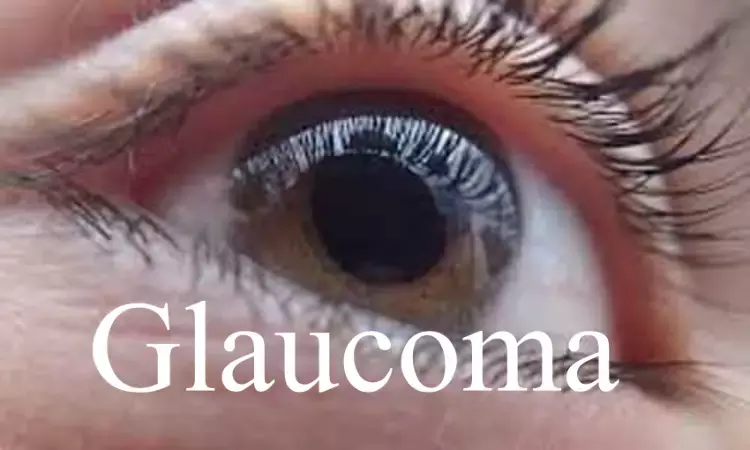- Home
- Medical news & Guidelines
- Anesthesiology
- Cardiology and CTVS
- Critical Care
- Dentistry
- Dermatology
- Diabetes and Endocrinology
- ENT
- Gastroenterology
- Medicine
- Nephrology
- Neurology
- Obstretics-Gynaecology
- Oncology
- Ophthalmology
- Orthopaedics
- Pediatrics-Neonatology
- Psychiatry
- Pulmonology
- Radiology
- Surgery
- Urology
- Laboratory Medicine
- Diet
- Nursing
- Paramedical
- Physiotherapy
- Health news
- Fact Check
- Bone Health Fact Check
- Brain Health Fact Check
- Cancer Related Fact Check
- Child Care Fact Check
- Dental and oral health fact check
- Diabetes and metabolic health fact check
- Diet and Nutrition Fact Check
- Eye and ENT Care Fact Check
- Fitness fact check
- Gut health fact check
- Heart health fact check
- Kidney health fact check
- Medical education fact check
- Men's health fact check
- Respiratory fact check
- Skin and hair care fact check
- Vaccine and Immunization fact check
- Women's health fact check
- AYUSH
- State News
- Andaman and Nicobar Islands
- Andhra Pradesh
- Arunachal Pradesh
- Assam
- Bihar
- Chandigarh
- Chattisgarh
- Dadra and Nagar Haveli
- Daman and Diu
- Delhi
- Goa
- Gujarat
- Haryana
- Himachal Pradesh
- Jammu & Kashmir
- Jharkhand
- Karnataka
- Kerala
- Ladakh
- Lakshadweep
- Madhya Pradesh
- Maharashtra
- Manipur
- Meghalaya
- Mizoram
- Nagaland
- Odisha
- Puducherry
- Punjab
- Rajasthan
- Sikkim
- Tamil Nadu
- Telangana
- Tripura
- Uttar Pradesh
- Uttrakhand
- West Bengal
- Medical Education
- Industry
Insufficient evidence for assessing balance of benefits and harms of glaucoma screening: USPSTF

USA: The current evidence is insufficient to assess the balance of benefits and harms of screening for primary open-angle glaucoma in adults (I statement), USPSTF concludes in its recently released recommendation statement. The benefits and harms of glaucoma screening in adults are not certain. More studies are required, the authors stated in the Journal of the American Medical Association (JAMA).
Glaucoma is defined as a chronic progressive optic neuropathy characterized by thinning of the structural optic disc layer, retinal nerve fiber layer, or both, and its associated visual field loss. Glaucoma is characterized as primary (idiopathic) or secondary (resulting from a known cause, such as trauma or inflammation) and as closed-angle or open-angle. "Open" refers to a visibly open anterior chamber angle (between the iris and the anterior sclera or peripheral cornea). Primary open-angle glaucoma (POAG), the most common form of glaucoma, is the focus of this recommendation.
About 2.7 million people are affected by glaucoma in the US. It is the leading cause of blindness in Black and Hispanic/Latino persons and the second-leading cause of irreversible blindness in the US. The US Preventive Services Task Force (USPSTF) commissioned a systematic review to evaluate the benefits and harms of screening for glaucoma in adults to update its 2013 recommendation.
The recommendation is applicable to adults 40 years or older who present in primary care settings and do not have signs or symptoms of open-angle glaucoma.
According to the recommendation statement, there is insufficient evidence to recommend for or against screening for primary open-angle glaucoma in the primary care settings in persons without symptoms of vision impairment. Clinicians should use their clinical judgment to determine if screening is applicable for individual patients.
In 2013, the USPSTF concluded that the evidence was insufficient to assess the balance of benefits and harms of screening for glaucoma in adults (I statement). This recommendation concurs with the previous I statement.
Reference:
US Preventive Services Task Force. Screening for Primary Open-Angle Glaucoma: US Preventive Services Task Force Recommendation Statement. JAMA. 2022;327(20):1992–1997. doi:10.1001/jama.2022.7013
Dr Kamal Kant Kohli-MBBS, DTCD- a chest specialist with more than 30 years of practice and a flair for writing clinical articles, Dr Kamal Kant Kohli joined Medical Dialogues as a Chief Editor of Medical News. Besides writing articles, as an editor, he proofreads and verifies all the medical content published on Medical Dialogues including those coming from journals, studies,medical conferences,guidelines etc. Email: drkohli@medicaldialogues.in. Contact no. 011-43720751


